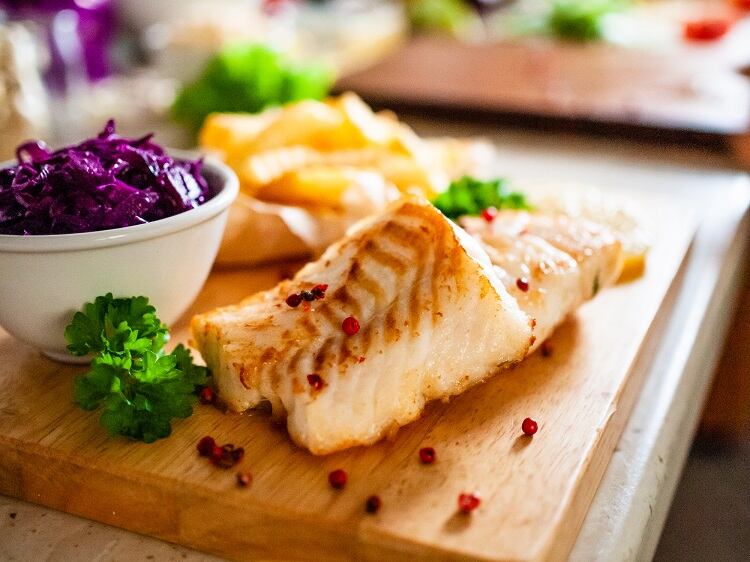It is estimated that by 2050, global populations will have risen to close to 10bn. That means there will be two billion more mouths to feed, in just 28 years’ time.
At the same time, the agri-food industry is struggling to reduce its negative environmental impacts. As it stands, the sector accounts for around one quarter of global greenhouse gas (GHG) emissions.
How will the food industry simultaneously increase its output, while managing limited natural resources and a warming climate? The answer, according to incubators working in the space, lies in food tech.
We spoke to three food tech experts working in Spain, Germany, and Israel, to find out what’s trending in food tech, what challenges their incubator start-ups are facing, where the ‘whitespace’ for innovation lies.
What food tech trends are hot right now?
What trends are food tech incubators and accelerators observing in their current cohorts?
While alt protein start-up accelerator, ProVeg Incubator, bases itself in Berlin, Germany, it receives applications from the world-over. And these start-ups are working across a ‘hugely diverse’ range or product categories, Louise Cullen, Senior Marketing & Communications Manager at ProVeg Incubator explained.
Some of the key trends ProVeg Incubator has observed include focus on ‘enabling technologies’ (such as scaffolding for cell-based meat production), liquid- and solid-state fermentation, mycoprotein and mycelium-derived product innovations, and a ‘new generation’ of B2B ingredients.
In its current cohort, for example, one start-up is working on a cultured fat ingredient for the B2B market, and another is developing a plant-based substitute for egg white protein albumin.
“Precision fermentation is another hot topic that is going to bring fundamental change to the alt dairy sector, because it’s going to bring us bioidentical cheese,” Cullen told FoodNavigator.
The accelerator has also observed an increasing number of companies creating algae-based products. One in its current cohort, for example, is developing microalgae-based seafood alternatives made using fermentation processes.

These trends mirror many that The Kitchen FoodTech Hub is seeing come through its doors in Ashdod (around an hour south of Tel Aviv), Israel. The Kitchen was established by food giant the Strauss Group in collaboration with the Israeli Government, and offers entrepreneurs a two-year programme to develop their technical expertise as well as their business models.
“Recently, we have seen more and more start-ups applying biotech,” The Kitchen’s CEO Jonathan Berger told this publication, “including synthetic biology, fermentation and precision fermentation, to create the future of food.”
These technologies are enabling food tech start ups to develop novel products, whether they be ingredients or finished products. “We see that in the next 10 years, the role of cellular agriculture will be much more significant,” we were told. “Cellular agriculture will replace part of the traditional animal-based agriculture [industry].”
Outlining the challenges
It’s not an easy road for food tech start-ups working with next-gen technologies and novel ingredients. The most obvious challenges fall into three categories: investment, scalability, and regulation.
Some government regulators are more progressive when it comes to novel ingredients and technologies than others. Singapore is likely considered the most advanced, having approved the first cell-cultured meat ingredient in late 2020, followed by the US. Europe – which is more conservative in food regulation – is trailing a good distance behind.
For Spanish investment firm Eatable Adventures, one of the clear main challenging facing food tech start-up is ‘specialised investment’. Eatable Adventures has partnered up with Pascual Innoventures – the innovation arm of dairy major Pascual – on the Mylkcubator incubation programme.
“By this, we mean verticalized VCs and fund focused on food tech, understanding the peculiar characteristics of this specific arena,” explained Itzia Ortega, Senior VP of Global Operations.
“Collaboration between large food corporations and leading start-ups is a must to create valuable and tangible solutions ready to deliver new opportunities for both parties. This is why the Mylkcubator programme was conceived: to support the most outstanding start-ups leading the way to a new dairy era.”

The Kitchen’s Berger agrees. “I think the top [challenge] is going to be funding,” he told us, suggesting the current economic climate may not do the food tech landscape any favours.
“We are very concerned about the situation in the market, and the ability of founders to adapt their valuations. Money used to be [easier to come by] and evaluations went very high. It will take some time for entrepreneurs to adapt their evaluations to what investors are willing to pay.”
The other major challenge is ‘slow regulation’, he continued. These food tech products need to get to market, and some require novel food regulation. “We are not seeing regulations open and dynamic enough to support the huge amount of innovation [in the space].
“This results in a longer time to market and a greater challenge in raising funds, because the products are relatively far from market.”
Eatable Adventures, too, referenced regulation as a ‘core uncertainty’ faced by not only start-ups, but by industry and investors. “From our viewpoint, the food industry, as well as fast and powerful proposals from start-ups, will be the main forces pushing for change in legislation,” said Ortega.
As mentioned, the other main barrier halting progress in the food tech space is scalability. While start-ups are achieving incredible feats in the lab, achieving commercial scale is often another story.
“Scalability is often a big challenge,” explained ProVeg Incubator’s Cullen. “An approach that might work at lab-scale could turn out to be commercially unviable on an industrial scale. This goes for both B2B and B2C models and approaches.”
What’s missing from the food tech landscape?
Having heard what’s currently trending in food tech, and which hurdles are hindering entrepreneurs’ progress, FoodNavigator wanted to know what ‘whitespace’ existed in food tech innovation. What kinds of technology and which focus areas would food tech incubators and accelerators like to see come through their cohorts?
There are at least ‘a few’ areas The Kitchen would like to cover, CEO Berger explained. The first, he said, is addressing price parity in alt protein.
“We know that alternative protein’s main challenge is cost parity. How can we bring the consumer wonderful products that are super sustainable at an affordable price?
“To do that, we need processing methods, cheaper ingredients, and new ingredients that can [shorten] ingredient lists.”
The other whitespace lies in health and nutrition, he continued. Consumers prefer to improve their health through diet, rather than medicine, which means there is scope for food tech to work with food supplements and additives with clinically proven health claims.
“Those are the areas we are constantly seeking for innovation.”

Over in Spain, Eatable Adventures sees whitespace in the production of high-value ingredients from alternative sources. Its Mylkcubator incubator programme is seeking high-tech start-ps related to the delivery of ‘not alternative, but complementary’ proteins related to dairy.
“Recently, we have noticed an increasing number of food start-ups developing projects in this space, as well as very outstanding technologies applied,” Ortega told this publication.
And at the ProVeg Incubator, it believes there are still ‘huge opportunities’ for growth in the plant-based cheese, ready meals, seafood, and egg alternative categories.
“Ambitious entrepreneurs who are harnessing game-changing technologies and exciting new ingredients, while focusing on categories that are ripe for innovation, are driving the changes we are seeing in this space,” said ProVeg’s Cullen.
The accelerator is looking for start-ups developing chicken, egg, and seafood alternatives, as well as ingredients and technologies that can help substitute animal-derived ‘staple products’ on a mass scale.
“We would like to see more applications from start-ups working on meat and seafood alternatives using fermentation tech, cellular agriculture, and precision fermentation, and from companies working with new plant-based ingredients.”





